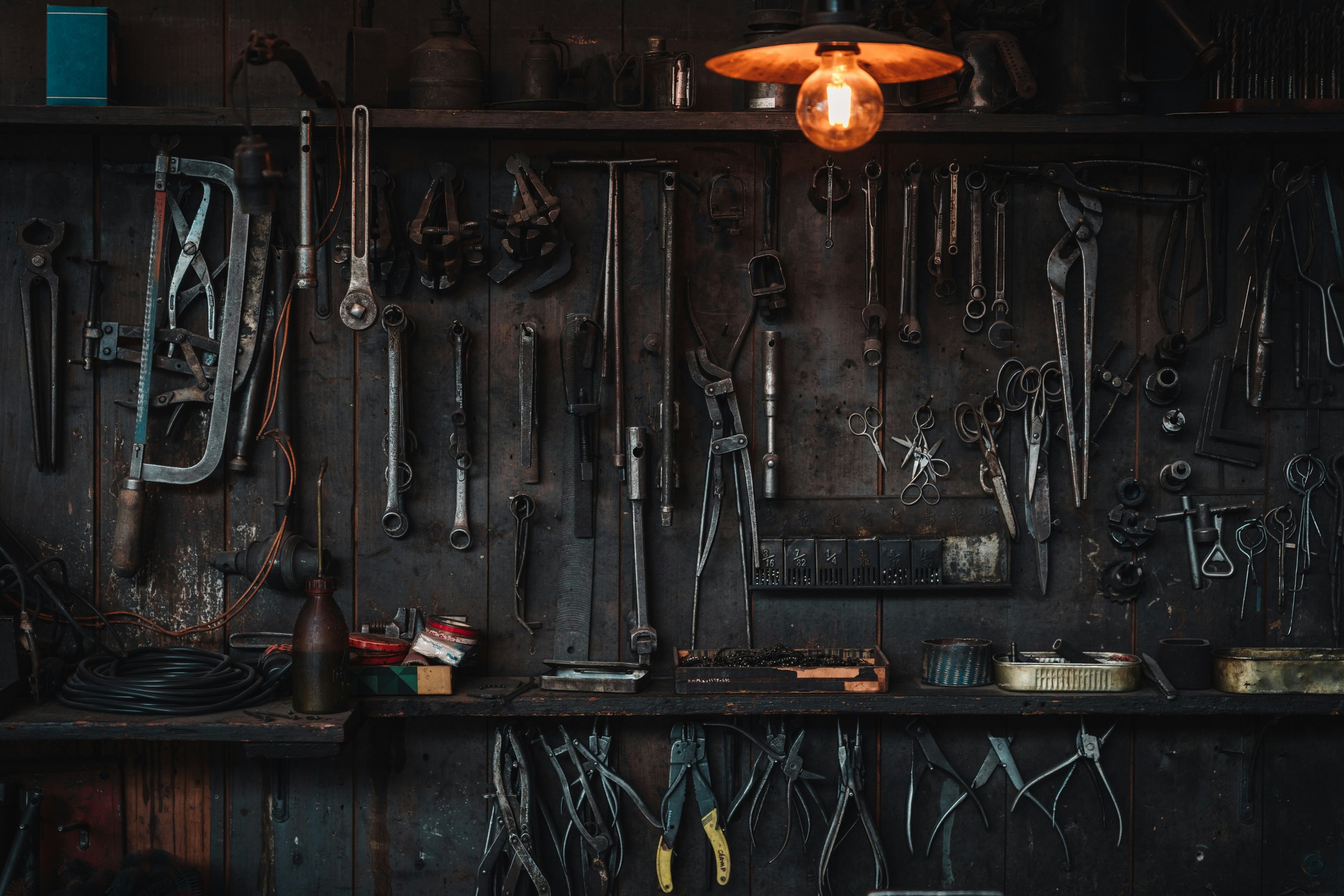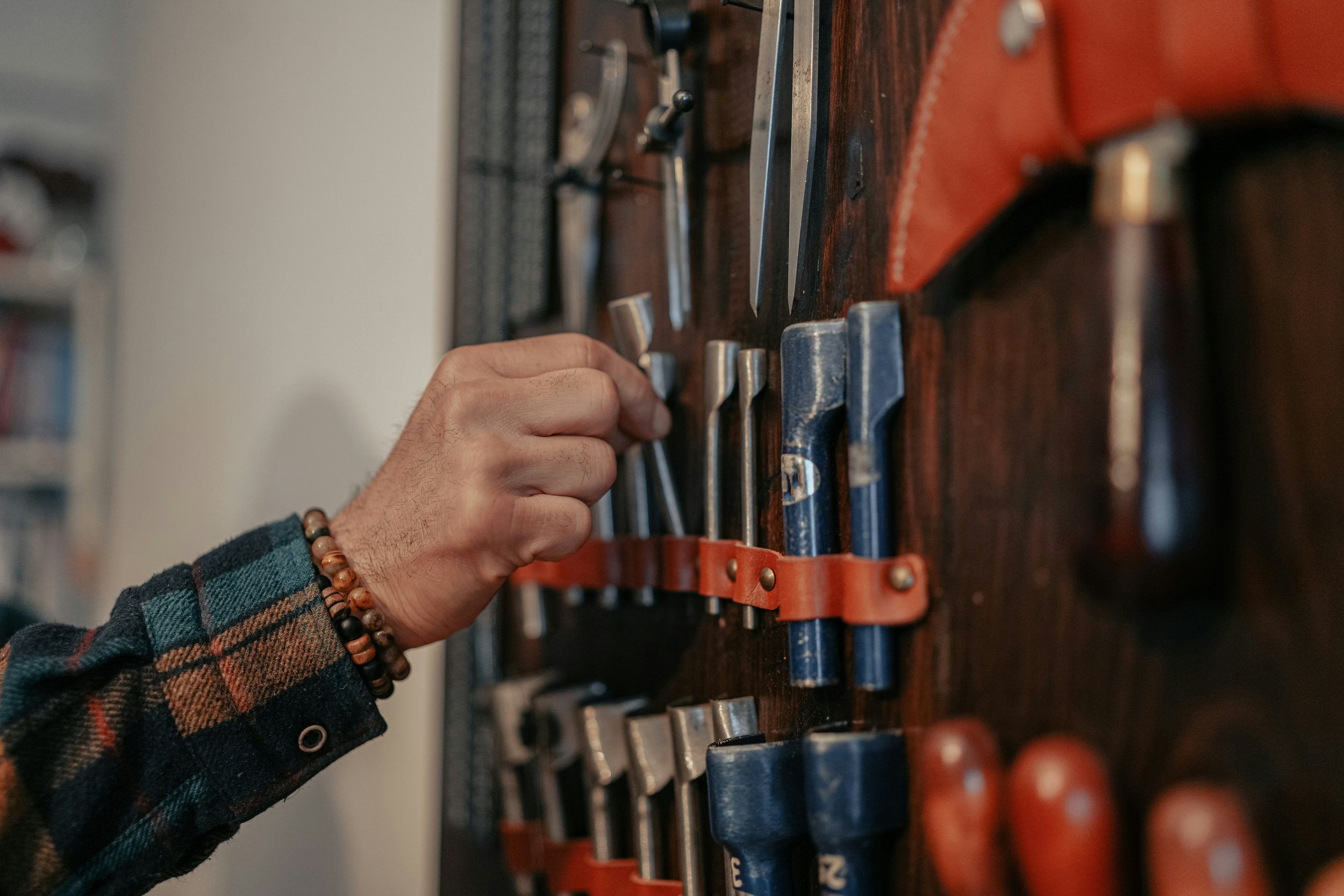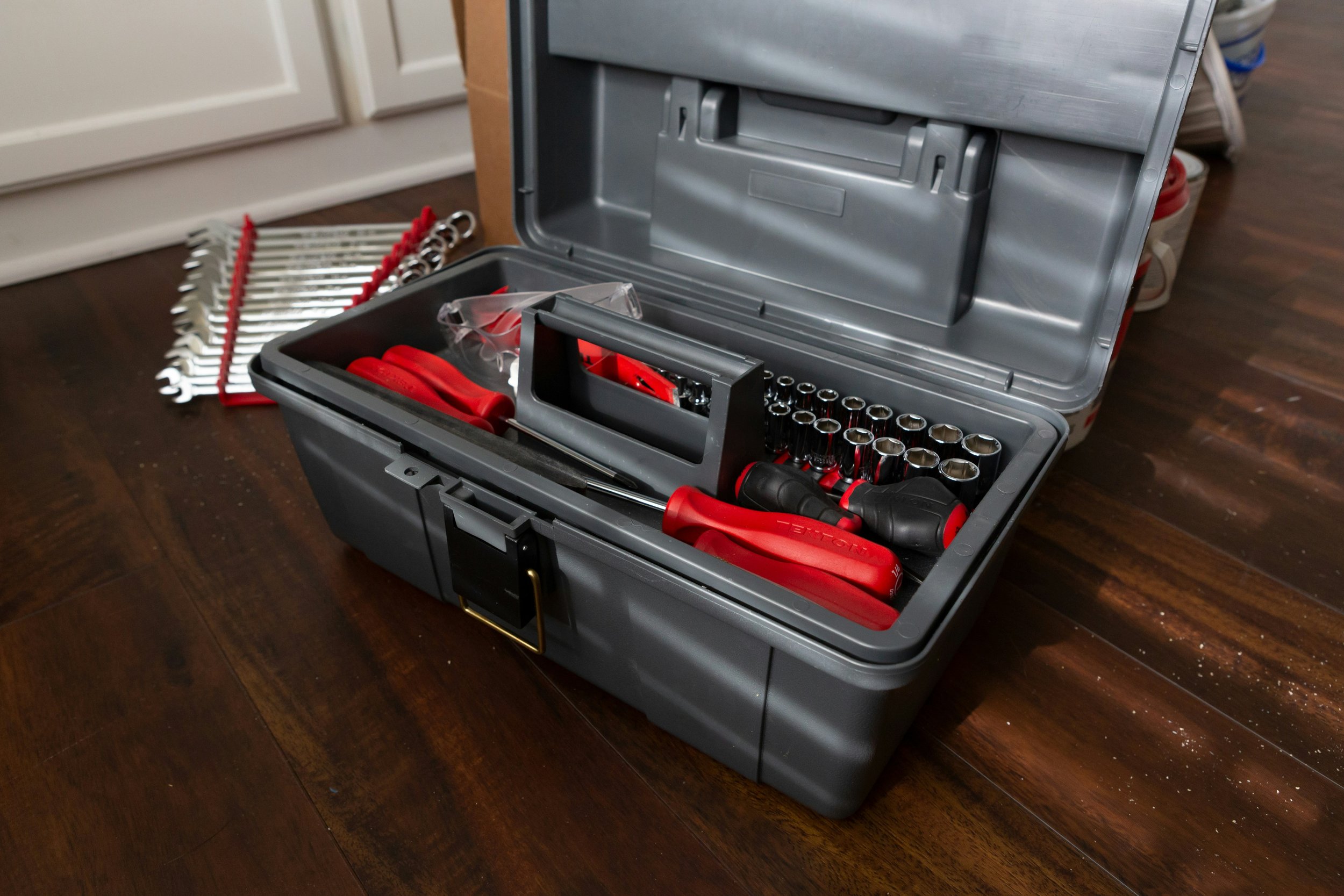Owner Builder: The Perfect Toolbox Tips
Discover essential toolbox tips for owner-builders. Learn how to choose the right tools, stay organized, and tackle construction projects like a pro.
When it comes to home improvement, few things are more rewarding than building or renovating your own home. Being an owner-builder not only allows you to customize your space but also saves you a significant amount of money. However, success in this role hinges on one crucial factor: having the right tools and knowledge.
In this guide, we will explore the essential tools and tips every owner-builder needs, including the proper use of key fasteners like zinc wedge anchors. From hand tools to safety tips, this article is designed to help you build with confidence and efficiency.
Toolbox Essentials for Every Owner Builder
Every construction project, large or small, starts with the right set of tools. As an owner-builder, the first thing you'll need is a well-stocked toolbox. The basic hand tools are indispensable.
You’ll use
a hammer for driving nails,
screwdrivers for tightening or loosening screws,
and wrenches or pliers for a variety of mechanical tasks.
A quality tape measure is non-negotiable for taking precise measurements,
while a carpenter’s square ensures your cuts are straight and true.
These tools may seem simple, but they form the backbone of any construction project.
Power tools, on the other hand, will elevate your efficiency to a new level.
Cordless drills are a must-have for drilling holes and driving screws quickly.
Saws—whether circular or jigsaws—are perfect for cutting wood,
and sanders will help you finish surfaces smoothly.
If you’re serious about getting the job done fast and well, an impact driver is ideal for tough fastening tasks, offering more torque than a traditional drill.
Investing in durable, reliable power tools will pay off significantly, especially when tackling larger projects.
Fastening Tools and Materials
The success of any structure depends on the fasteners that hold it together. Whether you're attaching drywall, framing, or working with heavy materials like concrete, the right fasteners are essential. Understanding the variety of screws, bolts, and nails available is key to ensuring you choose the correct one for your project.
In heavy-duty applications, anchors are indispensable. Zinc wedge anchors, in particular, are often a go-to for owner-builders working with concrete or masonry. Zinc wedge anchors are ideal for securing structural supports, such as beams or posts, into concrete. The unique design of wedge anchors ensures a secure hold. After you drill a hole into the concrete, you simply insert the anchor and tighten the nut. As you tighten, the anchor expands, locking it into place and ensuring a firm grip that won’t easily loosen over time.
Zinc wedge anchors are especially resistant to corrosion, making them ideal for long-term projects or areas exposed to moisture. Whether you’re working on a foundation or installing heavy-duty shelves, these fasteners offer the reliability you need. Make sure to choose the right size for your project and follow proper installation techniques to ensure your work is both secure and durable.
Safety Gear for Owner Builders
Construction comes with its fair share of risks, but with the right safety gear, you can minimize the chance of injury. As an owner-builder, it’s vital to prioritize safety, especially if you’re working with power tools or heavy materials.
Essential protective equipment includes hard hats to shield against head injuries, sturdy gloves for handling sharp or abrasive materials, and protective goggles to keep dust or debris out of your eyes. Knee pads can make tasks like laying flooring or working on a foundation much more comfortable and prevent long-term joint issues.
Power tools are indispensable, but they also pose the highest risk for injury. Always follow manufacturer guidelines for safe operation. For example, never remove safety guards from saws or sanders, and always wear ear protection when using loud equipment like drills or nail guns. Maintaining your tools regularly can also prevent accidents caused by malfunctions, such as a blade breaking mid-cut or a drill bit snapping.
Materials and Specialty Tools
As an owner-builder, knowing the materials you’ll be working with is just as important as knowing the tools. From wood and concrete to steel and drywall, the right materials will make or break your project. Always source high-quality materials, and do your research to understand how different types of wood or concrete mixes can affect the durability and appearance of your finished project.
For more advanced projects, basic tools might not be enough. Specialty tools like concrete mixers, pneumatic nailers, or laser distance meters can significantly speed up your work. Consider renting these tools for short-term use rather than purchasing them outright, especially if you're unlikely to need them frequently.
If your project involves plumbing or electrical work, having the proper tools is a must. Pipe wrenches, soldering irons, and wire strippers are just a few of the tools you’ll need. You may even want to invest in a multimeter for testing electrical circuits. Even though plumbing and electrical work can be intimidating, having the right equipment makes it much more manageable.
Pros and Cons of Owner Building
Pros:
Cost Savings on Labor
Owner building allows you to save significantly on labor costs, as you can tackle parts of the project yourself or hire contractors directly without a general contractor’s markup. This flexibility in budgeting means you can often allocate more funds to quality materials or finishes.Greater Project Control
With direct involvement, you have a say in every phase—from design to construction—making it easier to ensure the project aligns with your vision. This control allows you to make real-time adjustments, especially useful for adding personalized features or making changes based on unforeseen site conditions.Enhanced Knowledge and Skills
Owner building is an opportunity to learn a wide range of construction skills, from understanding structural basics to navigating permits and inspections. Many owner builders find the process enriching, as it equips them with knowledge and confidence for future projects and home maintenance.Satisfaction and Pride
Completing a project yourself brings a deep sense of pride. Many owner builders enjoy the rewarding feeling of creating a custom-built home, knowing they had a hand in bringing their ideas to life.
Cons:
Time-Intensive Commitment
Building a home requires a significant time investment, often stretching beyond initial estimates. Owner builders should be prepared to manage scheduling and may need to take time away from regular work or family obligations, which can be a strain over long projects.Complex Project Management Challenges
Coordinating subcontractors, managing deliveries, and handling inspections involve a high level of organization. Without prior experience, owner builders may find it challenging to keep all project elements aligned, and small delays can snowball into larger timeline setbacks.Potential for Cost Overruns
While cost-saving is a benefit, unforeseen expenses can quickly arise if you lack construction experience. Errors, delays, and needing to hire professionals for corrective work can all impact the budget. Planning for contingencies is essential to avoid financial strain.Increased Risk of Quality Issues
Without a seasoned builder’s expertise, quality control can become an issue. Mistakes in crucial areas like framing, electrical, or plumbing might go unnoticed, leading to costly repairs later. Having a consultant or experienced friend inspect critical stages can help mitigate this risk.
Final Thoughts
As an owner-builder, having the right tools, materials, and safety gear is essential for success. With a well-prepared toolbox, you’ll be ready to tackle any project that comes your way. From basic hand tools to specialized fasteners like zinc wedge anchors, every detail matters when it comes to building something that lasts. Armed with the right knowledge and equipment, you can approach your work with confidence and enjoy the satisfaction of bringing your vision to life.






